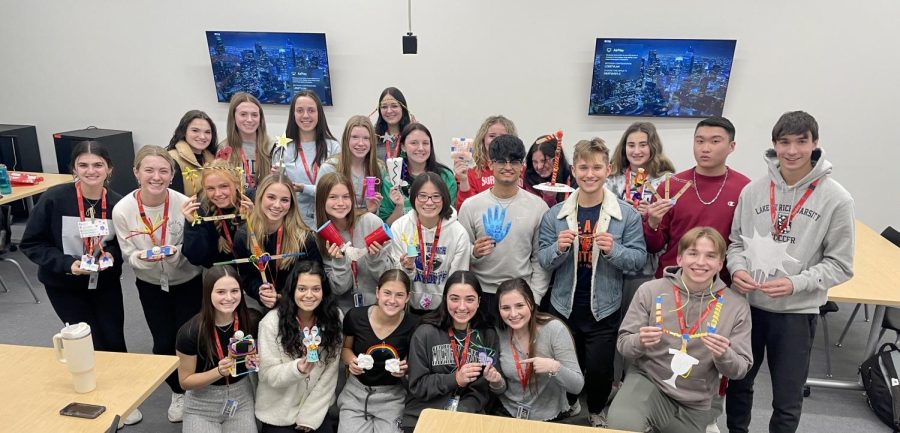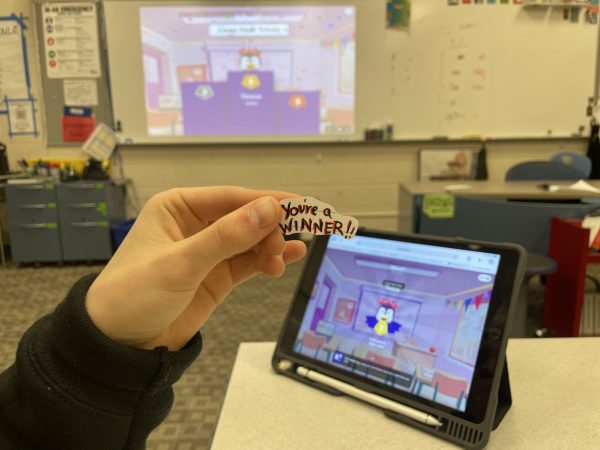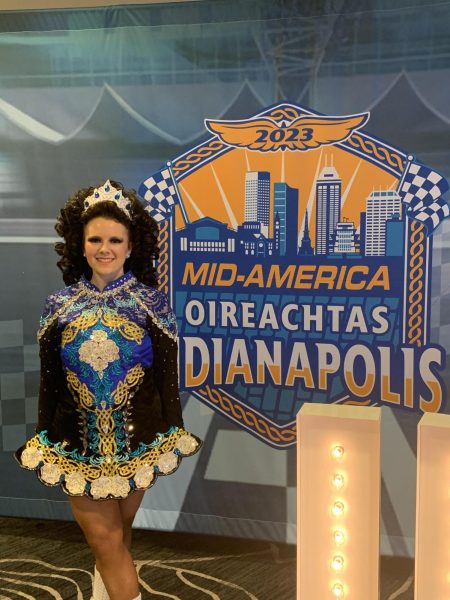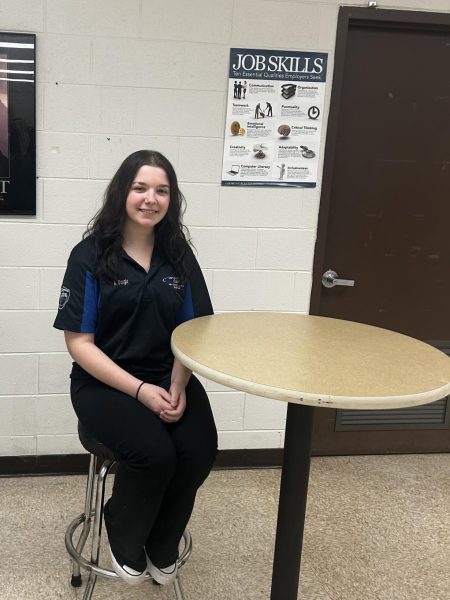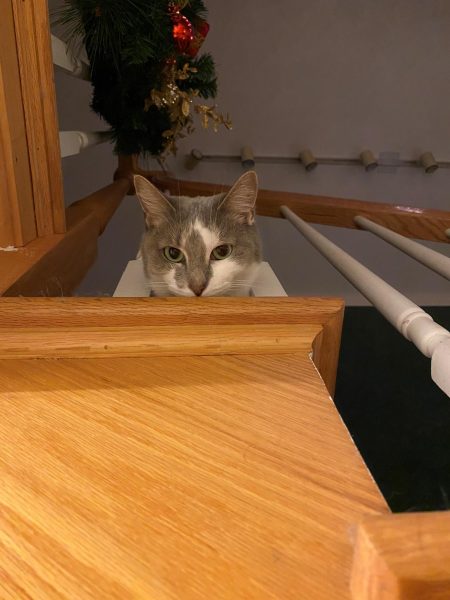Exercising leadership skills in PE
Photo by and used with the permission of Michelle Levin
Junior PE leaders spend a year in the classroom “learning how to plan [lessons] and thinking about the needs of other students,” according to Michelle Levin, PE leadership teacher. Next year, these students will move on to becoming senior PE leaders, where they will be able to apply their learning to their PE classes.
For a class based on physical activity with little to no academic load, it is surprising that PE can be daunting for many students, especially freshmen. However, helping them feel more comfortable is part of what PE leadership is all about.
According to Lindsey Neurauter, senior PE leader, PE leadership is an application-based program available for sophomores interested in “[helping] out the freshmen PE classes, [leading] them through activities, [learning] how to teach a class, and [creating] connections” by acting as “a mini teacher.”
For Zachary Fewkes, junior currently taking the PE leadership course, the aspect of helping freshmen is especially important as he says one of the things he hopes for as a PE leader next year is for them to enjoy PE.
“[I want] to help the freshmen have fun and I hope to [give] them an environment where they look forward to PE and are excited to see me, the teacher, and my PE leadership partner every day,” Fewkes said.
The “exciting” part of PE leadership remains true for Neurauter too. Neurauter says she likes PE leadership because “it is exciting to meet a whole new group of freshmen” and “get to know different types of people” in her class. As a result, she has been able to create long-lasting connections with them.
“Last semester, I created a really good relationship with the freshmen. [Now], they’ll come up to me in the hall and they’re like, ‘I miss you so much.’ I still am good friends with [some of] them [and] we connect through social media,” Neurauter said.
Michelle Levin, PE leadership teacher, agrees that having PE leaders is important because they give freshmen “someone in the building that [they] know [they] can ask questions to and feel comfortable with.” However, she also notes the crucial life skills that PE leaders themselves learn while taking the PE leadership class junior year.
“We talk about all aspects of character, leadership, and reflection. What do you value and why do you value it? For instance, if you say to me, ‘I value honesty,’ then we’ll break down why honesty is important. How does honesty impact relationships? Are we honest? When do we become dishonest? The classroom opportunity is a great time for us to reflect,” Levin said. “We talk a lot about how to build community and relationships. Those are two of our four learning goals because when they transition into their senior year, they’re the ones that are going to now use that building relationship piece with the freshmen. They’re sort of our liaison between the teacher and the student.”
Fewkes adds that upcoming student leaders learn ways to proficiently teach the freshmen in the class curriculum.
“There are the eight keys, which are basically things to do to succeed, [like] integrity,” Fewkes said. “We learn about the ways to keep the freshmen’s attention, to most effectively garner their attention, and most effectively [lead] a class that keeps them engaged and helps them learn.”
For all of its current and future benefits in teaching the importance of leadership, Levin recommends students join PE leadership. But her advice goes beyond just PE leadership, following her belief that leadership is a universal skill all students should learn, regardless of what clubs they are in.
“I would encourage any student to take the risk to get out of their comfort zone and give it a shot. I feel like kids are used to going home, hanging out with their friends, and doing stuff inside,” Levin said. “Get involved, join something, and feel like you have a little bit of a connection to the school. And you may not get [a leadership position] or you might, but it’s definitely worth the risk.”

As a junior, this is Grace’s second year on the Bear Facts staff, acting as secretary and Junior Spotlight Editor. In her free time, she enjoys running...

